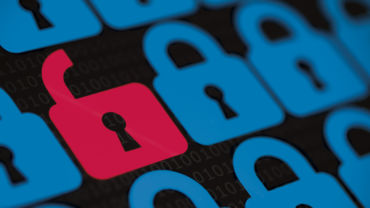How automation, digital identity and advanced analytics are transforming the future of knowledge work.
Emerging technologies are closely associated with the future of knowledge work because they play key roles in shaping and transforming how knowledge work will be conducted and how companies in various industries will have to adapt and in some cases rethink their business model end-to-end. This article focuses on business and organizational implications rather than on the technologies themselves.
In other words, we focus on the “how” and the “why” of technologies while pointing out the “what.”
Workflow and process improvement and automation
Emerging technologies: artificial intelligence, computer vision, robotics, blockchain
The advancement of machine learning and other techniques in artificial intelligence are giving businesses and their development teams the opportunities to design data-driven applications that can recognize patterns to become sufficiently “cognitive” to reduce and even automate repetitive manual work. The availability of both proprietary and open data has allowed software engineers and data scientists to use a portion of the available data to train mathematical and statistical models that can predict most likely scenarios or outcomes for a given set of parameters and external inputs.
Over time, the feedback loop generates more data and provides more real-world scenarios to the algorithms in the models. This in turn refines the models to become more accurate and efficient in improving or automating repetitive workflows and tasks.
While artificial intelligence makes the machines and systems smarter by consuming data to train algorithms and build models that could mimic real-world scenarios and think like humans, blockchain improves and automates workflows through its unique way of processing, storing, sharing immutable transactional information in a distributed peer-to-peer network. In payment and settlement systems in the capital markets, blockchain eliminates intermediaries that are tasked to validate and approve certain transactional information before the transactions settle. In government digital initiatives, putting paper-based records on blockchain and allowing a set of stakeholders in the trusted network to have access to the information reduce manual efforts in record-keeping, reconciliations, auditing, and corruption monitoring, especially in the emerging markets.
With the improvement and automation of workflows in the professional industries, employers and employees alike can unleash time spent on repetitive tasks to devote to higher value work in organizations.
Digital identity
Emerging technologies: advanced computing, deep learning, computer vision, blockchain, biometrics, IoT
Digital identity, at its core, is a machine-readable dataset of attributes that describe a person, an organization, a place, a physical asset large or small.
In the digital age in which every organization is a digital company, digital identity is the building block to understand current customers, future customers, and how they are related to each other and to other organizations.
Digital identity is the building block to understand the state and the value of the physical assets. Digital identity is the building block to establish trust among individuals, organizations, and any given network of stakeholders so that exchange of information and exchange of value through transactions can take place effectively and efficiently. And digital identity is the building block and enabler for compliance and risk management solutions.
Organizations are looking for more advanced ways to identify, verify, authenticate individual users through additional identity attributes such as biometrics and through better algorithms to detect anomalies using techniques such as deep learning.
Blockchain can serve as an immutable “vault” for digital identity information with the ability to share the cryptographically secured information only to the need-to-know party.
The combination of the rise of digital information about everything and continuous evolution and maturation of emerging technologies will bring innovation to solutions for “know-your-customer,” “know-your-supplier,” “know-your-counterparty,” “know-your-infrastructure asset” solutions, which are essential and mission critical for all organizations in all industries.
Advanced analytics
Emerging technologies: big data management, data analytics, data visualization, machine learning
As mentioned, every organization is a digital and data company, but meanwhile not every company has the expertise, capability, and resources yet to use advanced analytics to extract value from all of the internal and external data to generate greater actionable business insights.
Advanced analytics is an end-to-end solution with tools from data management to visualization to predictive modeling.
Organizations will need to be able to break down data silos, master the data with consistent hierarchy and ontology to enable standardization, consistency, search, and data sharing. Organizations will need to be able to extrapolate from the data lakes and data stores with accessible data query, reporting and analytics capabilities. Moving further up, organizations can then take historical, current, and forecast data to build predictive and machine-learning models to identify quantifiable trends to inform business operations and strategy.
Along this said advanced analytics capability curve, there are still significant pain points for organizations to move up the curve, which presents opportunities for innovative data and technology companies.
At Thomson Reuters, we are working with our customers to understand how to further marry trusted data and emerging technologies to optimize and grow their businesses – from blockchain-based data feeds integration to digital identity solutions (KYC, World-Check, Clear, ClearID, Blockone ID) to building the next generation financial analytics platform to data innovation projects.
Learn more
Visit Innovation @ ThomsonReuters.com for more on how we bring together smart data and human expertise to find trusted answers.






